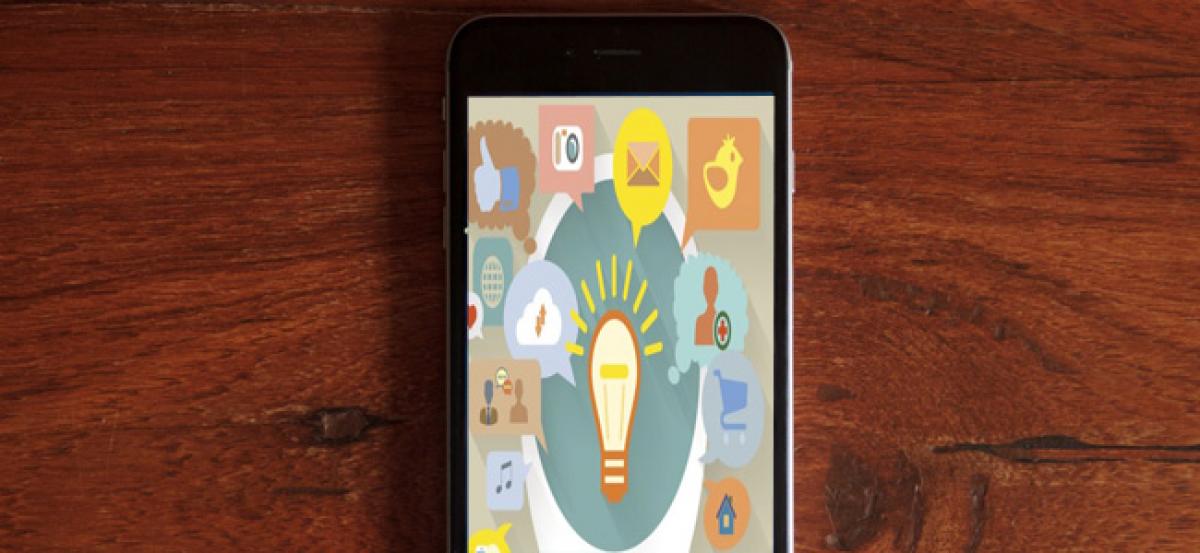Live
- Union Minister Gajendra Shekhawat inaugurates 4-day International Tourism Mart in Assam's Kaziranga
- Why buy personal accident coverage when you have term insurance?
- Term Insurance: A Comprehensive Guide to Affordable Life Coverage
- Tamil Star Couple Suriya and Jyothika Visit Kollur Mookambika Temple
- Mangaluru Resident Falls for APK Scam, Leads to Loss of Lakhs
- 45 punished over China mine gas explosion that killed 11
- New Mizoram Chief Secretary Khilli Ram Meena to take charge tomorrow
- Against India's growth story: Congress faces backlash over allegations against Adani Group
- Opposition again rakes up mango kernel deaths in Odisha Assembly
- Assam Police foiled infiltration attempt from Bangladesh: CM Sarma
Just In

Cambridge scientists have developed a brain-training app that may help improve the memory of patients suffering from early stages of dementia. The app called \'Game Show\' challenges users to match patterns and locations.
London: Cambridge scientists have developed a brain-training app that may help improve the memory of patients suffering from early stages of dementia. The app called 'Game Show' challenges users to match patterns and locations. Researchers from University of Cambridge in the UK tested the effects of the game on patients with amnestic mild cognitive impairment (aMCI), which has been described as the transitional stage between healthy ageing and dementia.
The team noted that patients who played the game made around a third fewer errors, needed fewer trials and improved their memory score by around 40 per cent, showing that they had correctly remembered the locations of more information at the first attempt on a test of episodic memory. Researchers noted that patients who played the game made around a third fewer errors, needed fewer trials and improved their memory score by around 40 per cent, showing that they had correctly remembered the locations of more information at the first attempt on a test of episodic memory.
Episodic memory is important for day-to-day activities and is used, for example, when remembering where we left our keys in the house or where we parked our car in a multi-story car park. Compared to the control group, the cognitive training group also retained more complex visual information after training. In addition, participants in the cognitive training group indicated that they enjoyed playing the game and were motivated to continue playing across the eight hours of cognitive training. Their confidence and subjective memory also increased with game play.
The researchers say that this demonstrates that games can help maximise engagement with cognitive training. "There's increasing evidence that brain training can be beneficial for boosting cognition and brain health, but it needs to be based on sound research and developed with patients," said Barbara Sahakian, professor at the University of Cambridge. Researchers assigned 42 patients with amnestic MCI to either the cognitive training or control group.
Participants in the cognitive training group played the memory game for a total of eight one-hour sessions over a four-week period while participants in the control group continued their clinic visits as usual. In the game, the player takes part in a game show to win gold coins. In each round, they are challenged to associate different geometric patterns with different locations.
Each correct answer allows the player to earn more coins. Rounds continue until completion or after six incorrect attempts are made. The better the player gets, the higher the number of geometric patterns presented – this helps tailor the difficulty of the game to the individual's performance to keep them motivated and engaged. The study was published in The International Journal of Neuropsychopharmacology.

© 2024 Hyderabad Media House Limited/The Hans India. All rights reserved. Powered by hocalwire.com







